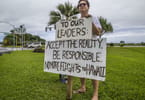The World Health Organization (WHO) declared the COVID-19 outbreak a global pandemic on 11 March.
The outbreak has had a severe impact on international travel; disruptions to flights and other modes of transport as well as lockdowns and movement restrictions have taken place with little to no prior warning.
Anyone undertaking travel at this time should ensure they are in good health, exercise good hygiene practices and be prepared for unexpected disruptions to their travel plans. Travelers from affected countries may face mandatory quarantine at their destination. Reconfirm itineraries prior to departure and closely follow travel alerts and advisories.
During travel to any destination and for up to 14 days after returning, individuals should monitor themselves for any flu-like symptoms – especially fever or shortness of breath. If experiencing any symptoms, travelers should self-isolate and contact their doctor or local authorities.
- Travelers should defer non-essential travel to Extreme Risk locations, which have severely restricted inbound, outbound and internal travel, near-complete disruptions to services and other activities and have widespread ongoing transmission.Travelers should reconsider their need to travel to High Risk locations, which have significant restrictions to inbound and internal travel and significant disruptions to services and other activities. These locations may or may not have widespread ongoing transmission.
Travelers should exercise caution when travelling to Medium Risk locations, which have some restrictions to travel, disruptions to services and other activities and have limited ongoing transmission.
COVID-19 RISK LEVEL EXTREME
▪ France ▪ Germany
▪ Iran ▪ Italy
▪ Spain ▪ USA: New York Metropolitan Area
COVID-19 RISK LEVEL HIGH
▪ Albania ▪ Algeria ▪ Angola ▪ Argentina ▪ Armenia ▪ Austria ▪ Bahamas ▪ Bahrain ▪ Bangladesh ▪ Belgium ▪ Bermuda ▪ Bolivia ▪ Bosnia-Herzegovnia ▪ Burkina Faso ▪ Cameroon ▪ Canada ▪ Cayman Islands ▪ Central African Republic ▪ Chad ▪ Chile ▪ China ▪ Colombia ▪ Congo-Brazzaville ▪ Costa Rica ▪ Côte d’Ivoire
▪ Croatia ▪ Cyprus ▪ Czech Republic ▪ Denmark ▪ Djibouti ▪ Dominican Republic ▪ DRC ▪ Ecuador ▪ Egypt ▪ El Salvador ▪ Estonia ▪ Finland ▪ French Polynesia ▪ Gabon ▪ Georgia ▪ Ghana ▪ Greece ▪ Guatemala ▪ Guinea-Bissau ▪ Haiti ▪ Honduras ▪ Hungary ▪ Iceland ▪ India ▪ Indonesia
▪ Iraq ▪ Ireland ▪ Israel ▪ Jordan ▪ Kazakhstan ▪ Kenya ▪ Kingdom of eSwatini ▪ Kuwait ▪ Kyrgyzstan ▪ Latvia ▪ Lebanon ▪ Liberia ▪ Libya ▪ Liechtenstein ▪ Lithuania ▪ Luxembourg ▪ Malaysia ▪ Mauritania ▪ Mauritius ▪ Mongolia ▪ Montenegro ▪ Morocco ▪ Namibia ▪ Nepal ▪ Netherlands
▪ New Caledonia ▪ New Zealand ▪ Niger ▪ Norway ▪ Oman ▪ Panama ▪ Papua New Guinea ▪ Paraguay ▪ Peru ▪ Philippines ▪ Poland ▪ Portugal ▪ Puerto Rico ▪ Qatar ▪ Russia ▪ Rwanda ▪ Sao Tome & Principe ▪ Saudi Arabia ▪ Senegal ▪ Serbia ▪ Slovakia ▪ Slovenia ▪ Somalia ▪ South Africa ▪ South Korea ▪ South Sudan
▪ Sri Lanka ▪ St. Lucia ▪ Sudan ▪ Svalbard and Jan Mayen ▪ Sweden ▪ Switzerland ▪ Syria ▪ Togo ▪ Trinidad and Tobago ▪ Tunisia ▪ Turkey ▪ Turks and Caicos ▪ Ukraine ▪ United Arab Emirates ▪ United Kingdom ▪ USA ▪ US Virgin Islands ▪ Uganda ▪ Uzbekistan ▪ Vanuatu ▪ Venezuela ▪ West Bank and Gaza ▪ Yemen
COVID-19 RISK LEVEL MEDIUM
▪ Afghanistan ▪ American Samoa ▪ Andorra ▪ Antigua and Barbuda ▪ Aruba ▪ Australia ▪ Azerbaijan ▪ Belarus ▪ Belize ▪ Benin ▪ Bhutan ▪ Botswana ▪ Brazil ▪ British Virgin Islands ▪ Brunei
▪ Bulgaria ▪ Burundi ▪ Cape Verde ▪ Cocos (Keeling) Islands ▪ Cook Islands ▪ Cuba ▪ Dominica ▪ East Timor ▪ Eritrea ▪ Equatorial Guinea ▪ Ethiopia ▪ Fiji ▪ Gambia ▪ Gibraltar
▪ Grenada ▪ Greenland ▪ Guam ▪ Guinea ▪ Guyana ▪ Hong Kong ▪ Jamaica ▪ Japan ▪ Kosovo ▪ Laos ▪ Macau ▪ Madagascar ▪ Malawi ▪ Maldives ▪ Mali
▪ Malta ▪ Moldova ▪ Monaco ▪ Myanmar ▪ Nigeria ▪ North Korea ▪ North Macedonia ▪ Pakistan ▪ Palau ▪ Romania ▪ Samoa ▪ San Marino ▪ Seychelles ▪ Sierra Leone ▪ Singapore
▪ Sint Maarten ▪ Solomon Islands ▪ St. Kittts and Nevis ▪ Suriname ▪ Taiwan ▪ Tajikistan ▪ Thailand ▪ Tongo ▪ Turkmenistan ▪ Uruguay ▪ Vietnam ▪ Zambia
SIGNIFICANT UPDATES FROM THE PAST WEEK
▪ From 27 March, Russia will suspend all international flights. Russian carriers will be allowed to fly to other countries to bring back Russian citizens. Domestic flights will still be operational.
▪ Indian Prime Minister Narendra Modi ordered a nationwide 21-day lockdown starting from 25 March; during the lockdown all non-essential businesses will be closed and only emergency services personnel and others authorized by the government, and those facing emergencies, will be allowed to travel outside their homes.
▪ On 25 March, Uruguay barred entry for all foreign nationals, except citizens and residents of Mercosur countries in transit to their countries of origin, and banned Uruguayan citizens and residents from travelling abroad for tourism until 13 April.
▪ Papua New Guinea extended a ban on all foreign nationals and incoming international flights until 5 April, amid a 14-day nationwide state of emergency. All domestic flights have also been suspended.
▪ Authorities in South Africa imposed a three-week nationwide 24/7 curfew beginning at 00:00 local time (22:00 GMT) on 26 March. Only essential services will be allowed to operate during the curfew.
▪ Officials in Malaysia announced that the restricted movement order implemented from 18 to 31 March has been extended to 14 April. All foreign visitors remain barred from entering the country and Malaysian citizens are prevented from travelling abroad.
▪ On 24 March, authorities in Japan indicated that foreign travelers from Iran and 18 European countries, including Austria, Belgium, Denmark, France Germany, Italy, Malta and Spain, will be denied entry into Japan until further notice.
▪ Following a decline in overall cases, authorities in China on 24 March lifted a lockdown across Hubei province, which was previously implemented since 23 January. Wuhan will remain under partial lockdown until 8 April. All international arrivals into the country will be screened for COVID-19 and will be required to self-quarantine for 14 days.
▪ On 24 March, UAE officials closed airports across the country for two weeks effective from 23:59 local time (19:59 GMT). Cargo and evacuation flights are not affected by the measure.
▪ Hong Kong announced an entry ban for all non-residents, including transit travelers, effective from 25 March.
▪ Poland implemented a nationwide lockdown on 25 March until 11 April. Individuals will be prohibited from leaving their homes except for essential activities as part of nationwide lockdown measures. Gatherings of over two people, excluding families and religious activities, are also banned.
WHAT TO EXPECT WHILE TRAVELLING
As the coronavirus outbreak has taken on a global dimension and the WHO has declared it a pandemic, most countries around the world have taken steps to prevent the outbreak from spreading further. Travelers should expect health screening measures – from non-invasive temperature screening to a full COVID-19 test involving nasal and throat swabs – at points of entry that remain open. Travelers may be quarantined until test results are complete.
Visibly ill travelers or those suspected of having the virus are likely to be interviewed and may be required to fill out health declaration forms to allow for a proper risk assessment and possible contact tracing. Travelers displaying symptoms, including a fever, cough or difficulty breathing; those with a potential exposure to the virus; and those testing positive for COVID-19 are likely to be isolated at the point of entry before being transferred to a designated quarantine or healthcare facility for further assessment and treatment. Those deemed healthy that are allowed to enter may still be required to monitor their health daily and report it to local authorities by phone or through an app.
Where flights still operate, an increasing number of countries have implemented a mandatory 14-day quarantine, either at home or at a designated facility, for all arrivals regardless of nationality, symptoms or recent travel history. Elsewhere, authorities have implemented similar quarantine measures for travelers arriving from countries with a high number of COVID-19 cases. Furthermore, a growing number of countries have either banned all foreign nationals or restricted entry for passengers who have recently been to coronavirus-affected destinations.
SECURITY RISKS There are related risks associated with the COVID-19 pandemic which may manifest as the crisis evolves in certain countries.
On the one hand, the infection of essential workers and measures to prevent the spread of the virus in critical sectors of the economy have the potential to cause both short- and long-term impacts on critical services and infrastructure. In a worse-case scenario, this could cause disruptions to essential services such as drinking water, electricity and food production and distribution. The risk of looting and other unrest sparked by poor service delivery increases as the virus spreads.
On the other hand, some populations may respond with hostility to prolonged movement controls – such as curfews or household lockdowns – or to invasive government tracking of patients or the general population through technology. In these cases, unrest directed at authorities and symbols of the government is possible and may have a negative impact on containment of the virus.
Violence directed at foreigners perceived to be responsible for the outbreak of the disease is increasingly likely over time. In the initial stages, anti-Chinese and anti-Asian sentiment and physical attacks were reported globally. As the outbreak shifted to Europe, attacks against perceived Europeans were reported, specifically in some African countries. With the outbreak expected to shift to the USA by April, similar incidents direct against Americans are possible.
Criminals may attempt to exploit the pandemic as an opportunity to profit through scams, phishing attacks, malware and other forms of fraud. Indeed, approximately 3,600 new internet domains containing the word “coronavirus” were created between 14 and 18 March alone. Take common sense precautions for digital security, including verifying urls and the source of message attachments before opening them.
Finally, there is a possibility of increased surveillance of individuals and the general public. Personal information may be disclosed to the public, especially for those who are diagnosed with the virus. Exercise discretion in deciding to communicate sensitive or personal information through electronic devices.
ADVICE
Currently, there is no vaccine to prevent COVID-19 infection. However, a number of everyday preventive actions can be taken to help protect from respiratory illnesses. General recommendations for personal hygiene, cough etiquette and keeping a distance of at least one meter (3.2 feet) from persons showing symptoms remain particularly important for all travelers.
Other recommendations include:
▪ Perform hand hygiene frequently, particularly after contact with respiratory secretions. Hand hygiene includes either cleaning hands with soap and water for at least 20 seconds or with an alcohol-based hand rub. Alcohol-based hand rubs are preferred if hands are not visibly soiled; wash hands with soap and water when they are visibly soiled;
▪ Cover your nose and mouth with a flexed elbow or paper tissue when coughing or sneezing and dispose immediately of the tissue;
▪ Refrain from touching your face, especially your mouth and nose;
▪ A medical mask is not required if exhibiting no symptoms, as there is no evidence that wearing a mask – of any type – protects non-sick persons. However, in some cultures, masks may be commonly worn. If masks are to be worn, it is critical to follow best practices on how to wear, remove and dispose of the mask;
▪ Avoid all contact with blood and body fluids of infected people;
▪ Wear a face mask in public if travelling or if in a confined space with others in locations with significant community transmission of the virus;
▪ Do not handle items that may have come in contact with an infected person’s blood or body fluids;
▪ In the event of planned contact with infected persons, wear personal protective equipment, including face masks, gloves and goggles/face shield;
▪ Contact a medical professional or use a local medical hotline if you display any of the possible symptoms (especially fever, shortness of breath and cough). Do not go to a medical facility until instructed to do so;
▪ Monitor your health while travelling and upon your return to your home country and seek medical attention immediately if any symptoms arise. Be sure to tell your health care provider if you have traveled to a region where the COVID-19 virus disease was present and tell them about your activities and the places you visited;
▪ Follow all initiatives and directives outlined by local and national health authorities as well as guidelines issued by the WHO and the CDC.























